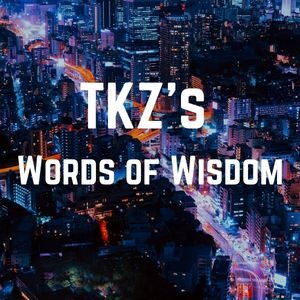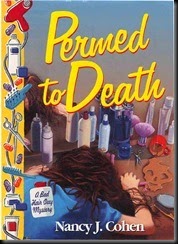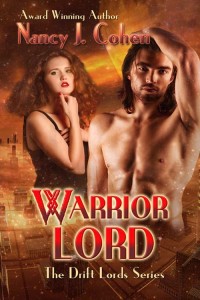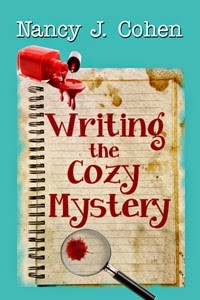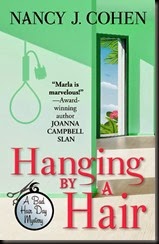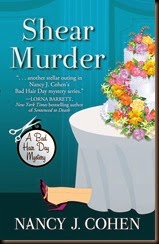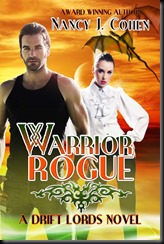From practicing your craft in a few thousand words, to story anthologies and indie publishing, short stories continue to offer opportunities for growth, experimentation, and finding readers.
So, with that in mind today’s Words of Wisdom looks once more at short fiction, with three excerpts from the KZB archive.
First, Jodie Renner gives tips on planning a short story which also works as revision touch stones for writers who pants their stories. Then, James Scott Bell discusses two overlooked reasons to write short stories. Finally Nancy J Cohen’s 3Ps of writing advice apply to writing, submitting and publishing short form as well novel-length fiction.

I’ve judged short stories for several contests and anthologies, including for Writer’s Digest, and I’ve come up with some tips for writing a compelling short story that is worthy of publishing or submitting to contests, magazines, and anthologies. Of course, these are only guidelines—like any good cook with a recipe, you’ll tweak them to suit your own vision, goal, and story idea.
PLANNING STAGE:
- Keep the story tight. Unlike a novel or even a novella, a short story is about just a small slice of life, with one story thread and one theme. Don’t get too ambitious. It’s best to limit it to one main character plus a few supporting characters, one main conflict, one geographical location, and a brief time frame, like a few weeks maximum—better yet, a few days, or even hours or minutes.
- Create a complex, charismatic main character, one readers will care about. Your protagonist should be multi-dimensional and at least somewhat sympathetic, so readers can relate to him and start bonding with him right away. He should be charismatic, with plenty of personality, but give him a human side, with some inner conflict and vulnerability, so readers identify with him and start worrying about him immediately. If readers don’t care about your character, they also won’t care about what happens to him.
- 3.Give your protagonist a burning desire. What does she want more than anything? This is the basis for your story goal, the driving force of your story.
- Decide what your character is most afraid of. What does your hero regret most? What is his biggest fear? What is he most afraid might happen? Give him some baggage and secrets.
- Devise a critical story problem/conflict. Create a main conflict or challenge for your protagonist. Put her in hot water right away, on the first page, so the readers start worrying about her early on. No conflict = no story. The conflict can be internal, external, or interpersonal, or all three, against one’s own demons, other people, circumstances, or nature.
- Develop a unique “voice” for this story by first getting to know your character really well. A good way is to journal in his voice. Pretend you are the character, writing in his secret diary, expressing his hopes and fears and venting his frustrations. Just let the ideas flow, in his point of view, using his words and expressions. Then take it a step further and carry that voice you’ve developed throughout the whole story, even to the narration and description, which are really the character’s thoughts, perceptions, observations and reactions. (In a novel, the voice will of course change in any chapters in other characters’ viewpoints.)
- Create an antagonist and a few interesting supporting characters. Give each of your characters a distinct personality, with their own agenda, hopes, accomplishments, fears, insecurities and secrets, and add some individual quirks to bring each of them to life. Supporting and minor characters should be quite different from your protagonist, for contrast.
- To enter and win contests, make your character and story unique and memorable. Try to jolt or awe the readers somehow, with a unique, charismatic, even quirky or weird character; a unique premise or situation; and an unexpected, even shocking revelation and plot twist.
- Experiment – take a chance. Short stories can be edgier, darker, or more intense because they’re short, and readers can tolerate something a little more extreme for a limited time.
Jodie Renner—July 28, 2014
Today I want to talk about two often overlooked reasons for writing the occasional short story. The first reason is, simply, that they’re fun. Lawrence Block, one of the grand masters of crime fiction––short and long––says in The Liar’s Companion: A Field Guide for Fiction Writers:
I figured short stories would be fun. They always are. I think I probably enjoy them more than novels. When they go well, they provide almost immediate gratification. When they go horribly hopelessly wrong, so what? To discard a failed short story is to throw away the work of a handful of hours, perhaps a couple of days. In a short story I can try new things, play with new styles, and take unaccustomed risks. They’re fun.
Why should you sometimes write just for fun? I’m glad you asked:
- Because “fun is the best thing to have.” – Arthur Bach
- Taking a break from longer work to have fun refreshes your writer’s mind
- Fun turns to joy which is a good thing for your writing voice.
Now, “fun” does not mean you’re just writing fluff. Far from it. Which leads me to the second overlooked reason for writing short stories: to deepen your intensity. Once again, Bradbury:
[T]he problem of the novel is to stay truthful. The short story, if you really are intense and you have an exciting idea, writes itself in a few hours. I try to encourage my student friends and my writer friends to write a short story in one day so it has a skin around it, its own intensity, its own life, its own reason for being. There’s a reason why the idea occurred to you at that hour anyway, so go with that and investigate it, get it down. Two or three thousand words in a few hours is not that hard. Don’t let people interfere with you. Boot ’em out, turn off the phone, hide away, get it done. If you carry a short story over to the next day you may overnight intellectualize something about it and try to make it too fancy, try to please someone.
Writing a short story this way sharpens your ability to concentrate, and also teaches you to bring intensity to the writing of scenes. Since scenes are the building blocks of your novels, that’s all to the good for your overall craft toolbox.
James Scott Bell—November 13, 2016
Usually when I’m giving advice to aspiring authors, I name the 3 P’s as Practice, Persistence, and Professionalism. In his recent post, James Scott Bell mentioned his 3 P’s for writers: Passion, Precision and Productivity. These are all valid and equally important.
Practice
It helps if you set a daily word count or page quota and a weekly quota, then put yourself on a strict writing schedule. This gives you definitive goals. Keep moving forward. If you get stuck, either you haven’t laid the proper groundwork or you are letting outside distractions snag your attention. Don’t get hung up on self-edits until you finish your first draft. It’s easier to fix what’s on the page once the story is complete. The point here is to write on an ongoing basis. Then follow James’ advice about Precision by learning how to hone your skills. Attend writing conferences. Read Writer’s Digest. Enter contests with feedback. Join a critique group. Go to meetings of your local writing group and sign up for workshops. And keep writing.
Persistence
Persevering at this career despite rejections, bad reviews, poor sales, and other setbacks is critical to success. If you drop out, you have only yourself to blame. Keep at it, and your skills will improve along with positive responses from readers, critique partners, and editors. “Never give up, never surrender.” That holds true for a writer same as for the crew of Galaxy Quest. Have faith in yourself. If you have the drive to write, you can improve your craft and learn marketable skills. The more books you have out there, the more chances you have to gain a following. Keep going despite the odds, and be versatile. At times, you may have to try something new and different. Don’t be afraid to take risks. Whichever route you take, quitting isn’t an option.
Professionalism
Always be polite and gracious, even when you get a bad review or a rejection. It’s hard not to take these personally, but they’re aimed toward your book and not you. You don’t want anyone saying you’re a gossip or you bad-mouthed your publisher or you made condescending remarks toward another author. It’s better to be known as someone who shares her knowledge, is helpful to her peers, and is a consummate professional in her dealings with editors and agents. If you need someone to hold your hand, turn to your critique group and not your publisher or agent. With their busy lives, these people don’t care to take on needy writers. They want career authors who will persistently turn in polished manuscripts, who establish and maintain a platform, who are active online, and who understand the publishing world. Act toward others as you’d wish to be treated. You never know when a writer friend from today might become your editor tomorrow, or an editor might become an agent, or a reviewer who raked your previous books over the coals might give you a rave review. The old adage, “Don’t burn your bridges,” holds true here, too. Be polite, courteous, and helpful at all times.
Nancy J Cohen—July 16, 2014
***
- Have you written short stories? If not, might you in the future?
- What do you think of Jodie’s planning tips? Do you think they could be useful when revising a short story?
- Have you written a short story just for the fun of it? Have you used them to deepen your intensity?
- What’s your take on Nancy’s 3Ps of writing advice?



